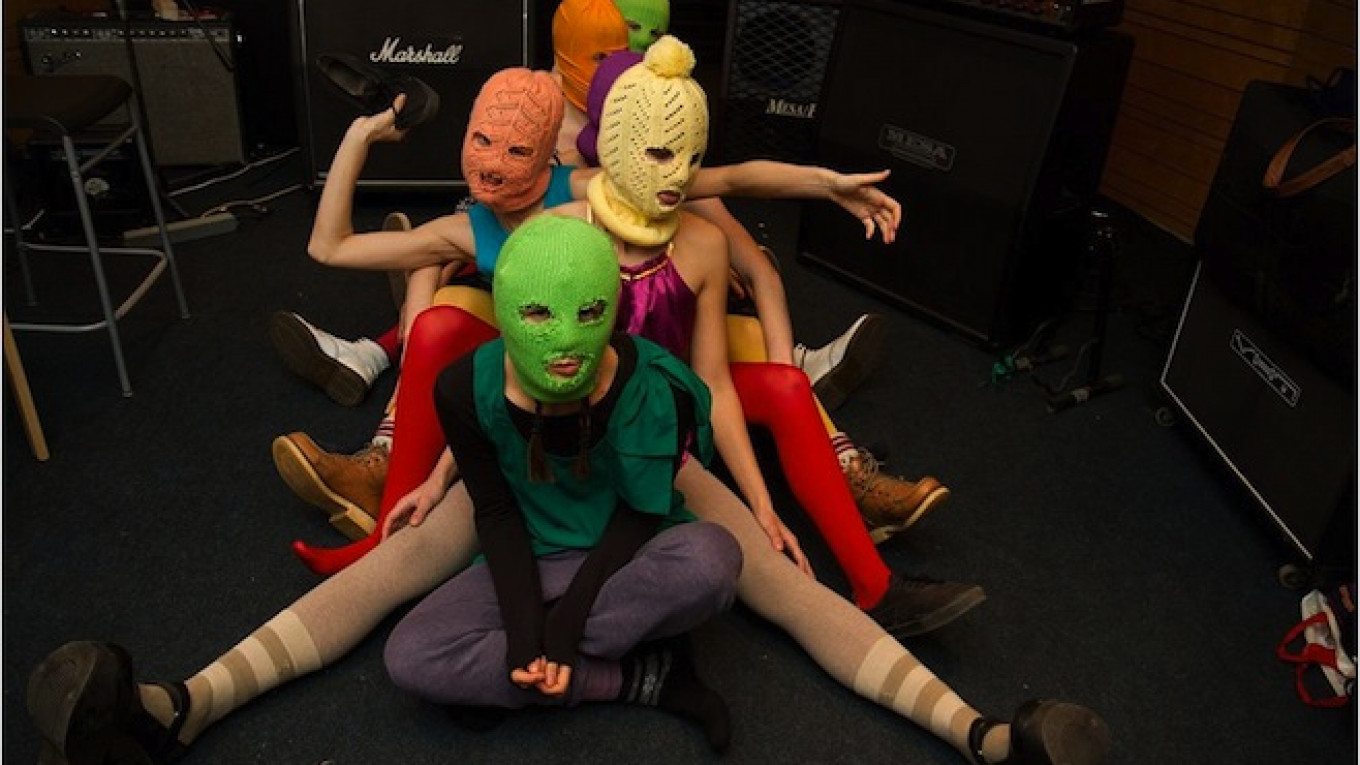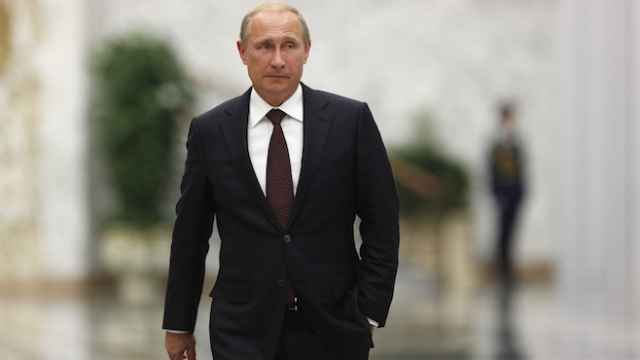LONDON — President Vladimir Putin may not be as popular as opinion polls suggest in Russia because the public has only limited access to information and the media is tightly controlled, members of the feminist punk protest band Pussy Riot said.
Putin's approval ratings have soared to more than 80 percent since the start of the crisis in Ukraine and remained high despite an economic downturn and currency crisis.
Band members Nadezhda Tolokonnikova and Maria Alyokhina served jail sentences for a profanity-laced protest in 2012 against Putin in Moscow's Christ the Savior Cathedral, which offended many Orthodox Christians.
"We don't think it's possible to talk about any kind of statistics of support or non-support for the president when people lack information," Alyokhina, 26, said during a visit to London this week.
"Putin's ratings are directly dependent on the content of the television programs. If you look at the level of propaganda … it has increased a lot since the start of the Ukrainian revolution," Tolokonnikova, 25, said.
The pair said they felt hopeful for Russia's divided opposition, many members of whom have remained in Russia and continued their political activities although mass rallies against Putin in the winter of 2011-12 faded.
"We see pluralism: We can see that there are different ideological and political positions in Russia. If the authoritarianism finally ends, we will have real competition," Alyokhina said.
Since their release from jail in December 2013 the pair have campaigned for prisoners' rights in Russia and elsewhere.
They criticized Western governments for surveillance of their citizens and their treatment of prisoners such as Chelsea Manning, who is serving a 35-year sentence in the U.S. for turning over secret files to WikiLeaks.
In London, the women met Julian Assange who has spent more than two years in Ecuador's embassy to avoid a sex crimes inquiry in Sweden.
A Message from The Moscow Times:
Dear readers,
We are facing unprecedented challenges. Russia's Prosecutor General's Office has designated The Moscow Times as an "undesirable" organization, criminalizing our work and putting our staff at risk of prosecution. This follows our earlier unjust labeling as a "foreign agent."
These actions are direct attempts to silence independent journalism in Russia. The authorities claim our work "discredits the decisions of the Russian leadership." We see things differently: we strive to provide accurate, unbiased reporting on Russia.
We, the journalists of The Moscow Times, refuse to be silenced. But to continue our work, we need your help.
Your support, no matter how small, makes a world of difference. If you can, please support us monthly starting from just $2. It's quick to set up, and every contribution makes a significant impact.
By supporting The Moscow Times, you're defending open, independent journalism in the face of repression. Thank you for standing with us.
Remind me later.






